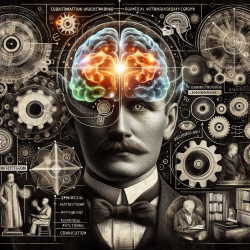Introduction
John Stuart Mill, a prominent philosopher and thinker, is often recognized for his contributions to economic theory and moral philosophy. However, his influence on the nascent science of psychology and cognition remains underappreciated. Mill's assertion that mental phenomena are governed by specific laws of order laid the groundwork for psychology as a science. This blog explores Mill's contributions to cognitive science and how practitioners can enhance their skills by integrating these insights into their practice.
Mill's Vision for Psychology
Mill advocated for an empirical approach to studying mental phenomena, emphasizing the need for experimentation and observation. He proposed that psychology should parallel physiology, studying mental states and their associations. This approach has influenced modern cognitive science, which now incorporates both physiological and psychological perspectives to understand cognition.
Associationism and Its Modern Relevance
Mill's concept of associationism, where mental states connect to form complex memory structures, has evolved into contemporary cognitive theories. This notion underpins modern connectionism and parallel distributed processing models, which describe how sophisticated mental phenomena emerge from interconnected neural networks. Practitioners can leverage these insights to develop interventions that enhance cognitive processing and learning.
The Role of Introspection
Despite criticism from contemporaries like Auguste Comte, Mill championed introspection as a valuable method for understanding mental processes. This introspective approach has informed cognitive therapies, where individuals examine their thoughts to identify and modify maladaptive patterns. Practitioners can incorporate introspective techniques to foster self-awareness and cognitive restructuring in clients.
Selective and Divided Attention
Mill's observations on attention laid the groundwork for understanding selective and divided attention. He noted that attention could be focused or divided, influencing how information is processed. Modern cognitive tasks, such as the Stroop test, build on these concepts to assess attention and cognitive control. Practitioners can use these tasks to evaluate and enhance clients' attentional capacities.
Meta-Cognition: Thinking About Thinking
Mill's insights into introspection align with the concept of meta-cognition—thinking about one's own thinking processes. Meta-cognitive awareness is crucial for effective learning and problem-solving. Practitioners can cultivate this skill in clients through mindfulness-based interventions, promoting better cognitive and emotional regulation.
Conclusion
John Stuart Mill's contributions to the science of cognition have shaped modern understanding and practice. By integrating Mill's insights into empirical observation, associationism, introspection, and attention, practitioners can enhance their cognitive interventions. As we continue to refine our understanding of cognition, Mill's legacy remains a guiding force in the quest to define and improve cognitive science.
To read the original research paper, please follow this link: Mill and Mental Phenomena: Critical Contributions to a Science of Cognition.










